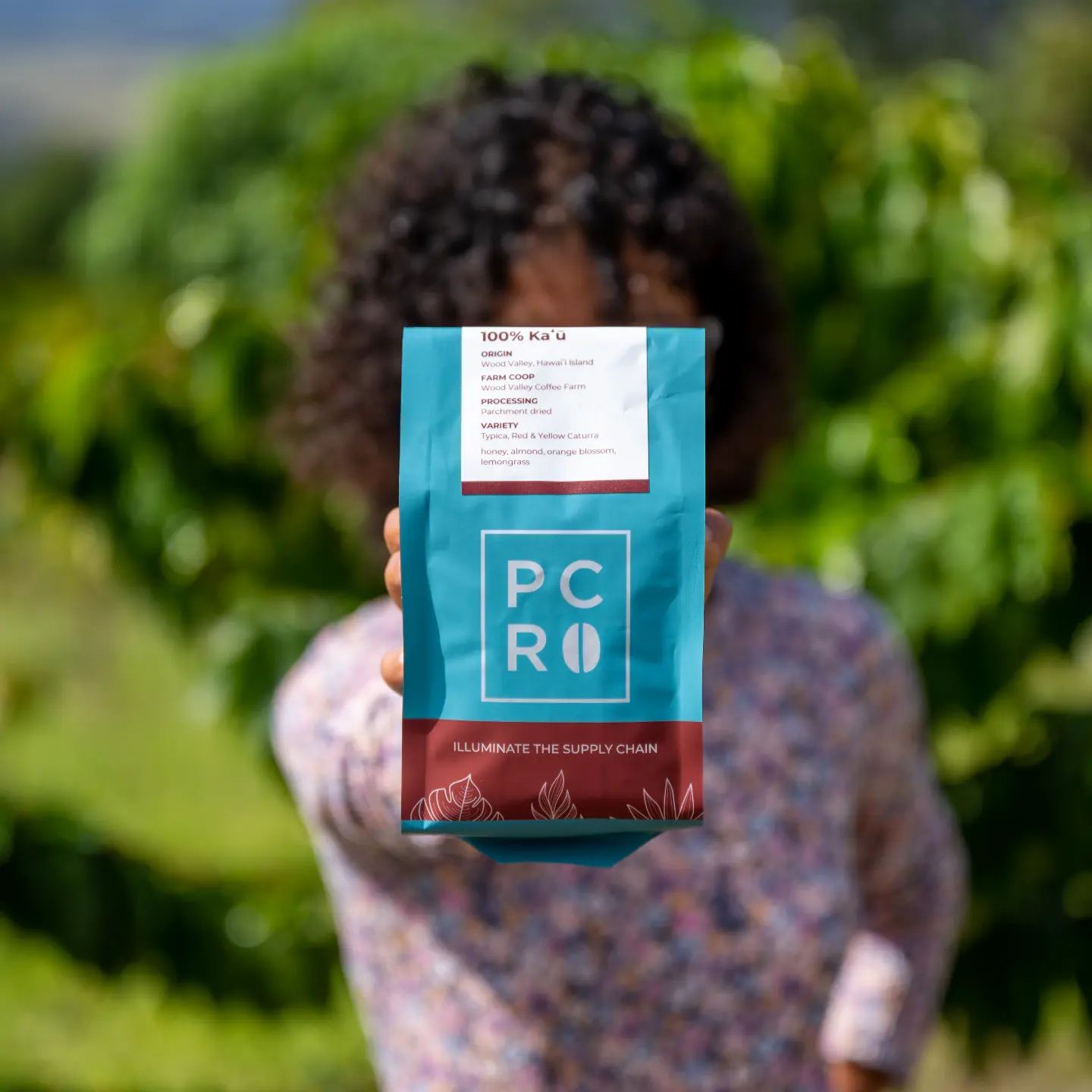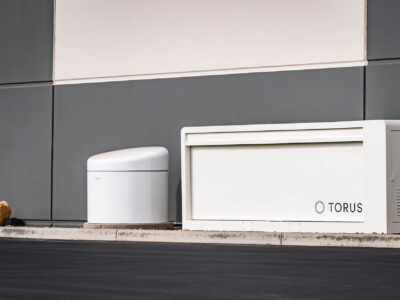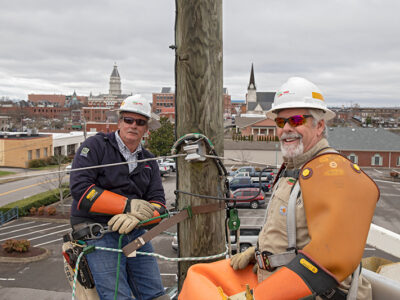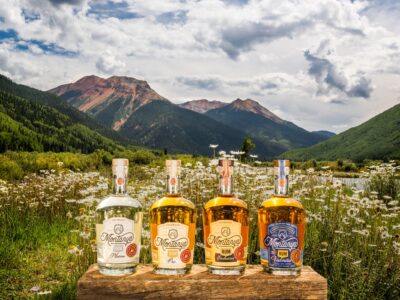Located on Hawaii’s Big Island, Pacific Coffee Research (PCR) is committed to providing quality coffee business education to all workers in the industry. A team of highly qualified professionals has made it their mission to improve the standard of coffee and work practices. It is women-owned and operated and has earned a solid reputation.
The venture was founded by Brittany Horn and Madeleine Longoria Garcia in 2017, both with a background in coffee. Horn is an authorized Specialty Coffee Association (SCA) Trainer in Green Coffee, Sensory Skills, and Sustainability in Coffee. She held a position on the executive board of the Hawaii Coffee Association. Longoria Garcia has been in the Java business since 2010, working with local producers in Hawaii, serving as a panelist at events like the U.S. National Brewers Cup, and being the Community Coordinator on the SCA U.S. Chapter.
This year, PCR’s Aloha Star Coffee and Wood Valley Coffee won Good Food Awards for their high product quality and ethical business practices.
PCR has added bean and grounds wholesale and retail, along with its education programs.
The Business Download sat down with Horn to talk all things PCR. We learned all about its coffee business education programs, the sustainability initiatives at its farm, and how the company has helped out in response to the Maui wildfires.
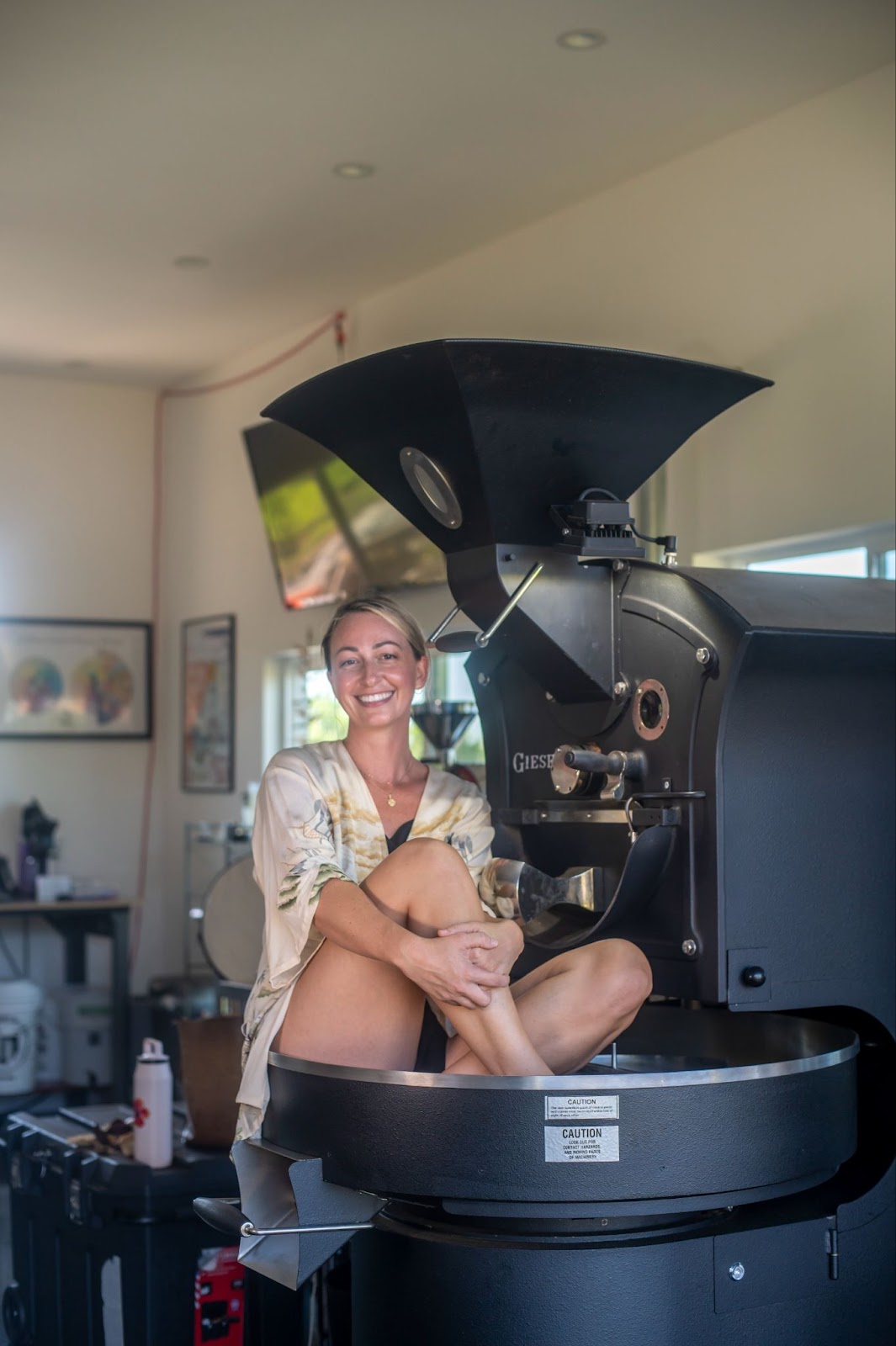
Photo Courtesy Pacific Coffee Research
TBD: Brittany, thanks very much for joining us today. What inspired you to start this coffee research company?
BH: I started the company in 2017. I had been working for a cafe, and I was on the roastery side of things. I would always hear the question, “Why is it so expensive?” There was always this very flatline response, “Because it’s the best in the world,” which I would just hear every single day and just be constantly reminded what a disservice that actually is.
There are some really fantastic coffees in Kona, but that’s not why it costs what it does. So, this idea of education being at the core of what builds understanding, opportunity, and partnerships; it’s constantly in the back of my mind. I started taking some classes with the Specialty Coffee Association, which were like certificate courses. At that time, there weren’t any educational facilities. There wasn’t any unbiased third-party cupping lab.
There are 1,000 farms here in Kona, and some of these bigger players have internal quality control labs and facilities.
But for the three-acre smallholder farm, they didn’t have anyone to send their coffees to be evaluated and cupped and provided some non-biased feedback.
So, all of these kinds of things were just floating in the ether and in my mind, and after I completed the certificate courses, the company that I was working with at the time really wanted to start this coffee school. They didn’t have the funding to get started. I got a partner to support the financial side of things. We got a lease in the building, got it certified with the Specialty Coffee Association, the coffee quality institute, as a lab, and got started.
TBD: Very cool. So, I would assume with coffee cultivation, there’s a lot of sustainability involved in the growing process. Can you take me through some of PCR’s sustainability and education initiatives?
BH: So, full disclosure, I’m not a coffee farmer. The coffee farm we operate is run by our silent partner, Werner, who provided the funding for our startup. His farm is a closed-circle system. Everything that is everything that isn’t wasted is repurposed in some capacity.
For us as a business, this is kind of the ethos of how we operate. There are aspects of the business like recycling and composting. Beyond that, we also have access to a biogas digester. We create methane, which is generally used for kitchen burners, but we also use it in a small roaster. All of the water that’s utilized for processing coffee is repurposed for fertigation.
As far as the education side of things, I was part of the first cohort of individuals to complete the sustainability and coffee program with the Specialty Coffee Association.
I’m an ASC, which is an Authorized Speciality Coffee Trainer, and they felt that these educational opportunities were really lacking in this discussion on the future of the coffee industry. “How do we work together as a collective?”
So, [the] Speciality Coffee Association was a group of four women who created this program. It started the conversations with roasters, buyers, consumers, and farmers. So, I teach that program, and we did one recently, and my silent partner did one about his experience as a farmer and how he achieved a level of sustainability in his farming practices.
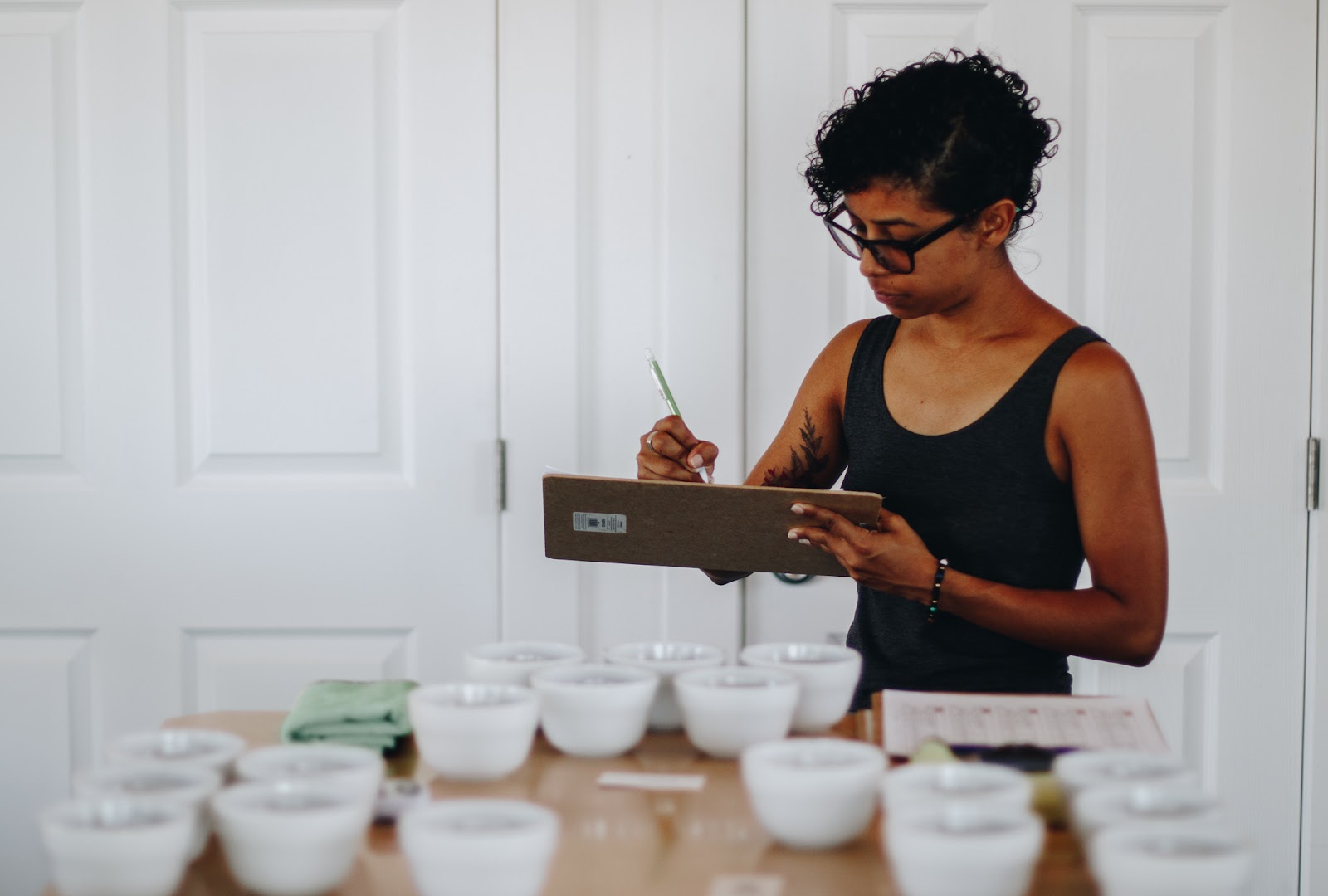
Photo Courtesy Pacific Coffee Research
TBD: How has the local Hawaiian coffee industry engaged with your programs?
BH: We have had so many opportunities in this community. Just over the last five years that we’ve been in operation, I was on the board of the Hawaii Coffee Association, but I’ve stepped back from that to take some time off. I’ve been on this very intense, active board and took a leadership role early on. I just needed to take a step back and focus on my business.
Just having been given the opportunity, it just gave me so much perspective and so many connections to people in our community. I was one of the youngest members on the board. Being trusted to run the statewide cupping competition and being given that opportunity early on was huge for our business.
On a more national level, we won a Good Food Award this year, and that was huge. At the award ceremony, Madeleine and I were invited to speak on behalf of all the coffee awardees.
The stage had about 12 men behind us. We were given the microphone to talk about not specifically being like women on operation but about education and the future of coffee, why creating a business model that was centered on education, and why we felt like that was making a difference.
I think for us, getting that recognition for our business model, for our business practices, for what we prioritize as a company was really big.
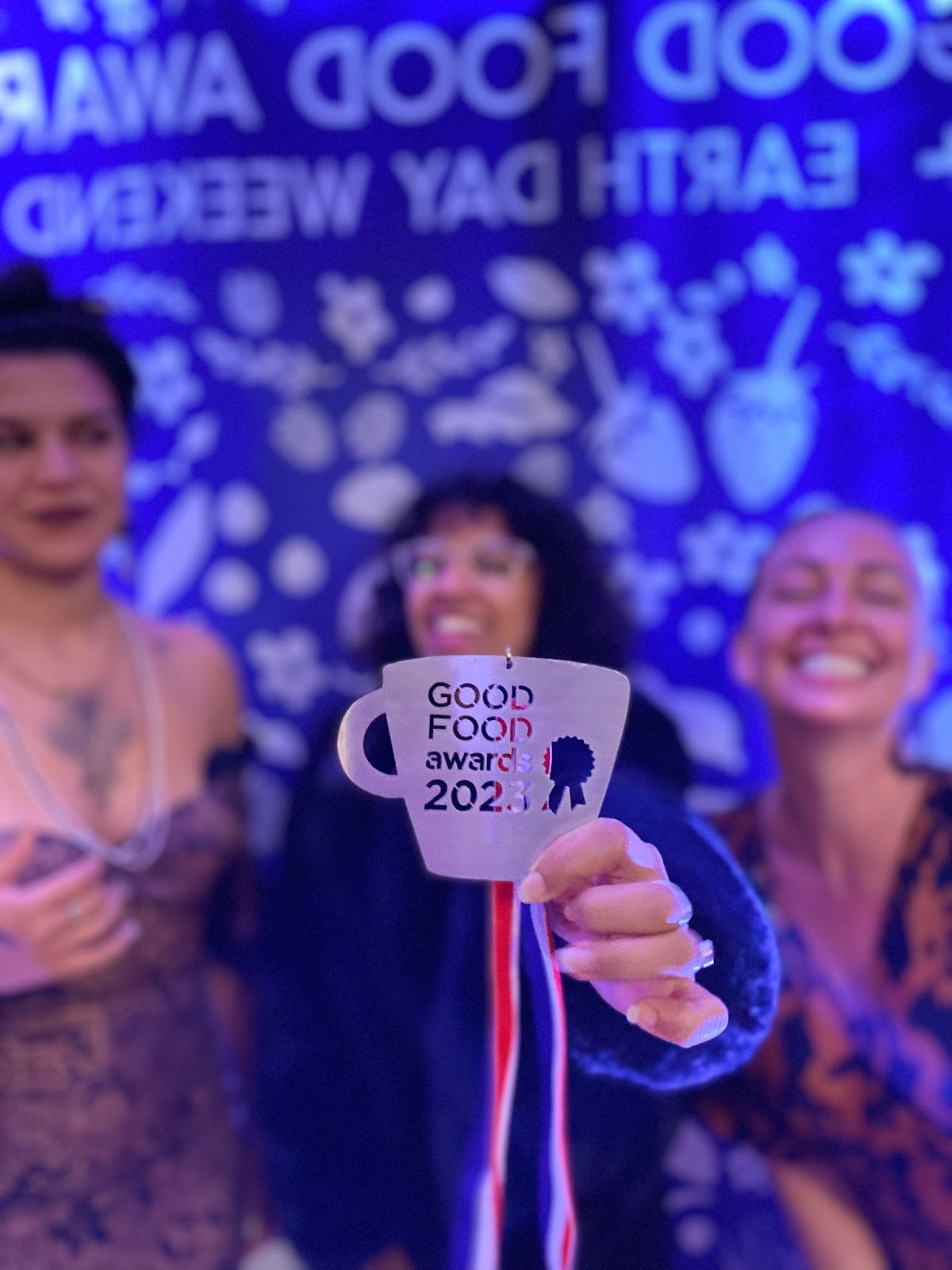
Photo Courtesy Pacific Coffee Research
TBD: Was PCR involved in any charitable efforts during the Maui wildfires?
BH: The catastrophic fires in Lahaina and other parts of Maui have seen the biggest coffee supplier on the island — their entire inventory, storage facility, and processing equipment — burned down, and their cafe.
It was so crazy because right before the fire, we had ordered a pallet of coffee from them. Two days before the fire, that coffee landed in Kona. All of their inventory was devastated. We thought that was eerie timing and wanted to help back.
We started a fundraising campaign with our local wholesale partners. We were matching contributions that they were making for ground coffee to ship over to volunteers who are working with FEMA and other organizations.
TBD: What advice would you offer those trying to enter the coffee business?
BH: I would say take care of your employees. I get teary-eyed when I talk about that. Even if you can’t pay them the highest wage, give them opportunities to feel like a human.
There’s not a lot of upward mobility in my business yet, but we provide a lot of flexibility with our employees because I want to make sure that they have an opportunity to have their lives outside of work. I want them to have a work-life balance. I want to have that for myself.
So, I try to treat my employees with the same understanding and level of respect I treat myself, and that seems to serve us pretty well. Our employees stick around. I don’t have a high turnover rate. I think there’s just so much opportunity for people to find ways to grow together and trust each other.

